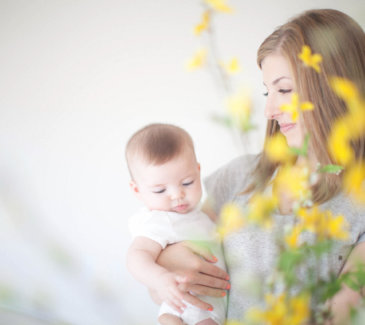I’ll never forget that evening in early January.
Our young and only child, Matthew, was asleep, and my wife was at a meeting that would run late. We were a happy little family. Being in our mid-thirties, though, we knew our biological clock was winding down. In recent months, we had conceived again, but miscarriage claimed that little life. Matthew was a joy, and we were willing to call our family complete.
Then the phone rang.
An ob-gyn we knew from church was calling. His wife was at the same meeting my wife was attending. After initial pleasantries, he cut to the chase. He had just delivered a baby girl earlier that day whose mother said she could not keep her. She begged him to find a family for her. He thought of us since he knew about our miscarriage.
Would we be willing to adopt her?
The trip begins
I was elated.
A little girl? I only had one brother, no sisters. Of course, I could not say yes without bringing my wife into the conversation. Here’s the rare instance where the father knows about the baby first!
The ob-gyn went on to say that we should know the baby’s mother had “issues.” She was in her early thirties, divorced, and estranged from her parents and siblings. He felt she was likely manic-depressive, i.e., bipolar, although she was undiagnosed.
He told me that the baby girl had a fifty-fifty chance of inheriting this trait. He also said she was a beautiful baby, and that he and his wife would have considered adopting her if they were younger.
I was convinced we could love this baby out of anything nature dealt her.
Navigating rough waters
Fast-forward three decades.
That baby, now our daughter, is nearing her thirtieth birthday. Unfortunately, she inherited much of her biological mother’s emotional/psychological genetics. Raising her has been full of extremes.
On one hand, no one tells me “I love you” more than this child. On the other hand, we have never been more hurt or angered by anyone than this child. Most of our great joys and sorrows of life have her at the center.
Essentially, once she entered puberty, raising her became like whitewater rafting.
As parents, we were in the boat with her, but we soon realized we had no control of the river and little control of the boat. To exacerbate the issues of the rough ride, she kept trying to push us out of the boat. We found ways to stay with her, although it was tempting to get out and swim away.
During her worst moments, I kept telling her, “You need us more than you know. We’ll get out of the boat when the water is calmer.”
Three truths I learned on the ride
Now, over thirty years after that incredible phone call, we have learned things about adoption we had no way of knowing at the time. I’m not sure this would have made any difference in our decision to adopt, but we might have been more prepared for what was to come had we known these truths.
Adoptive children mourn the very event that adoptive parents celebrate.
While we gained a child we love dearly, she lost a mother whose voice, touch, and smell were familiar. We glossed over her expressions of loss with phrases like “You’re our chosen child.”
While we always told her the truth every time she inquired about her origins, we didn’t share more information than she asked. Yet, we never let her openly grieve and mourn the loss of her first family.
Nurture does not (necessarily) overcome nature.
In fact, I contend that nature holds the upper hand. Figuratively, I see nature as the river and nurture as the boat. The boat can be guided (some), but we can’t change the river.
Some children have a smooth ride or steer around the rough waters. Others go headlong into it. At the worst times, all we could do as parents was hold her and hold on.
A genetic connection makes a difference.
We had hoped our daughter’s biological family might someday play a role in her life. But, she’d have to be ready to handle the potential drama of it. For a number of reasons, we were not able to make that happen.
However, today our daughter has a baby of her own. For the first time in our daughter’s memory, she can now peer into the face of another person and see her own genetics looking back. She now looks like someone. She can see her own behaviors—good and bad—in someone else. I cannot overemphasize how important this connection is.
Returning to shore
The water is calmer now.
But, getting out of the boat is more difficult than my wife and I expected. After weathering the turbulence, we rather enjoy this lazy-river time. Our daughter now holds on to us and thanks us for calming the river.
Of course, the Lord calmed the waters, not us. He also steered the boat.
He’s Lord of nature and nurture.
Now, with grandchildren, we may need a bigger boat.



